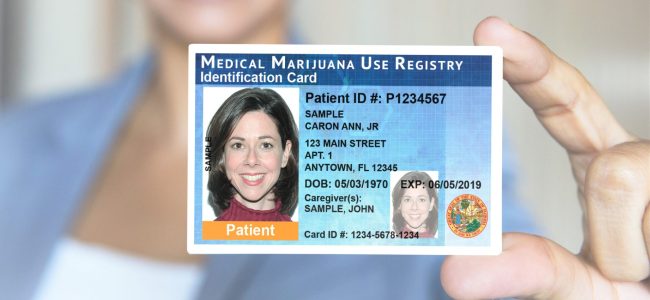How To Get A Medical Marijuana Card – The Ultimate Guide
There are different ways to get a Medical Marijuana Card. However, you should be extra careful to avoid falling for unlicensed card mills and price traps.
The process of obtaining a Medical Marijuana Certification involves a licensed Medical Marijuana Doctor, who gives the patient a Medical Recommendation to use marijuana for medical purposes. However, the Medical Recommendations are valid for a specific period. And, while most states have allowed minors to get a Medical Marijuana Card, a legal guardian should be involved. Also, it’s essential to note that the eligibility conditions for Medical Marijuana Cards differ from state to state.
What Does It Cost To Apply For A Medical Marijuana Card?
To check your eligibility, visit MedCards.Co, and scroll down the homepage to select your respective state. The cost of applying for a Medical Marijuana Card for the first time ranges from $100 to $200 for a certification period of 6 to 12 months. It’s cheaper to renew your certification with the same doctor—the one who approved your first application. This can cost you between $0 and $130 for a period of 7 to 12 months. In addition to the certification fees, which are paid directly to the Doctor, you will need to pay administrative State fees as well in some States. Always consider the certification period when comparing the pricing.
Here Are Some Conditions That May Qualify In Your State
Please Check Your Eligibility With A Local Marijuana Doctor.
- Amyotrophic lateral sclerosis (ALS);
- Anxiety disorders;
- Autism;
- Cancer, including remission therapy;
- Crohn’s disease;
- Damage to the nervous tissue of the central nervous system (brain-spinal cord) with objective neurological indication of intractable spasticity, and other associated neuropathies;
- Dyskinetic and spastic movement disorders;
- Epilepsy;
- Glaucoma;
- HIV / AIDS;
- Huntington’s disease;
- Inflammatory bowel disease (IBD);
- Intractable seizures;
- Multiple sclerosis (MS);
- Neurodegenerative diseases;
- Neuropathies;
- Opioid use disorder for which conventional therapeutic interventions are contraindicated or ineffective, or for which adjunctive therapy is indicated in combination with primary therapeutic interventions;
- Parkinson’s disease;
- Post-traumatic stress disorder (PTSD);
- Severe chronic or intractable pain of neuropathic origin or severe chronic or intractable pain;
- Sickle cell anemia;
- Terminal illness; and
- Tourette syndrome.
Qualifying Conditions Vary Per State & May Change Over Time.
Find Medical Marijuana Doctors In Your State!
Trusted Doctors, discounted prices, same-day availabilities & more. Apply for a Medical Marijuana Card today.
How To Avoid Fake Medical Marijuana Cards, Card Mills, And Price Traps?
A price trap happens when a provider charges exorbitant certification fees for very short certification periods—like monthly certifications for a Medical Marijuana Card. For instance, your doctor can charge you $99 for 3 months, which translates to $396 per year. This also applies to the monthly subscription-based prices, which can cost you a fortune for a 12-month period. While a $39 or $99 Medical Marijuana Card may sound like a reasonable deal, ensure that both the certification price and certification period make sense. It’s important to be mindful of these prices since Insurance companies don’t cover such out-of-pocket costs because of Federal Law.
Can I Get A Medical Marijuana Card Online, Or Does It Need To Be In Person?
Today, doctors in certain states have started to offer Online Medical Marijuana Certifications (for initial and renewal certifications) through Telemedicine. The doctors aim to moderate the number of patients in waiting rooms, in a bid to control the transmission of COVID-19. Current states allowing online certifications include Arizona, California, Colorado, Connecticut, Iowa, Illinois, Louisiana, Massachusetts, Maryland, Maine, Michigan, Missouri, Montana, Nevada, New Jersey, New York, Ohio, Oklahoma, Pennsylvania, Rhode Island, Texas, and Virginia.
In these states, doctors send their patients a video chat link, which they use to communicate with their patients. While communicating, the doctor assesses the patient to check if they are ideal candidates for Medical Marijuana Certification. Also, visiting your Doctor for an in-person certification is a common thing and a standard requirement in all the states that allow Medical Marijuana Certification.
What Do I Need To Do After I Get My Medical Marijuana Recommendation From My Doctor?
After getting a Medical Recommendation from your doctor, you will have to make a formal application with your State Health Department to request your Medical Marijuana Card. Please note that it’s important to search for the Medical Marijuana Program in your state to ensure that you make your application through an official government site (the website usually ends in “.org”). Usually, Doctors are able to help you throughout the application process. Also, you will need to pay an extra administrative fee when applying for your Medical Marijuana Card in your state. This fee ranges between $0 and $99, depending on the state. Currently, some states have waived the application fees because of COVID-19.
How Long Does It Take To Get My Medical Marijuana Card?
The whole process takes between 1 to 3 weeks depending on your state. Once your card is approved, you should get your Medical Marijuana Card via mail. Also, you will get electronic confirmation through email that the state has approved your application for a Medical Marijuana Card.
When Can I Buy Medical Cannabis Products At Dispensaries?
Some States allow patients to purchase medical cannabis products when the patient receives their approval confirmation from the State’s Health Department. Demonstrating the approval ID will be sufficient enough to show at the dispensary to be able to purchase products. Other States require patients to demonstrate their physical medical marijuana card at the dispensary.

